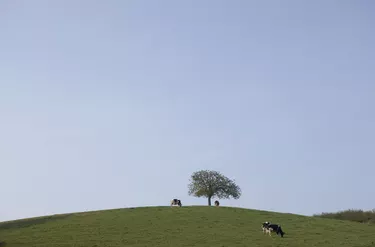
Even with the downtrend in real estate that heralded the 21st century's economic meltdown, land is still considered one of the top investment choices by many commercial and private investors. When deciding to make a land purchase, an investor must consider the profitability potential, and determining the residual land value can be an effective means of doing this.
Simple Definition
Video of the Day
Simply put, the residual land value is a method used to determine the value and potential profitability of a piece of property minus any expenses related to the land, according to the real estate website Real Estate Agent. Residual land value is the value of the land that remains after any and all deductions associated with the cost of developing, maintaining or reselling the land.
Video of the Day
Further Analysis
In the case of residential lots, marketable value is equal to the potential revenue the land generates after subtracting the costs of establishing that revenue, according to the Irvine Company, a California-based real estate broker. With residential or commercial land, costs are involved. In addition to the purchase price of the land, the owner is responsible for taxes, insurance and other fees.
Subdividing the property, building a home or putting up commercial buildings incurs additional costs. If the land is purchased for $100,000 and then developed and maintained at a cost of $300,000, the residual land value is only equal to the profit above and beyond the $400,000 investment. The residual land value is equal to $100,000 if the finished property sells for $500,000.
Alternative Definition
Another method of arriving at the residual land value is known as the land-residual approach, according to Michael Hudson, president of the Institute for the Study of Long-term Economic Trends. In the land-residual approach, a property is appraised according to current real estate conditions and recent sales prices of comparable properties. Any buildings or structures that are part of the land are assessed a value in terms of either their replacement cost or depreciated value. The remaining value is determined to be the residual value of the land itself.
Changing Residual Values
Although residual land value can be used to determine the potential profitability of a possible land investment, it may not always be reliable. Land values can change abruptly depending on the real estate climate of a particular area. In addition, rising labor and material costs along with unforeseen expenses associated with the land could increase the final investment figures and negatively impact the final residual value.